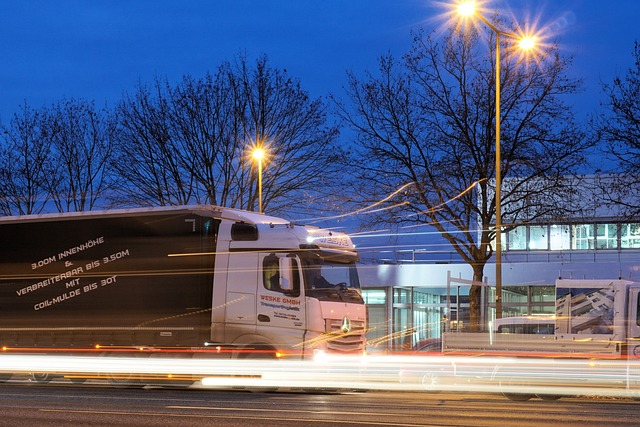E-Bus And E-Truck EV Charging Solution: Tackling Charging Challenges Head-On. With the rising demand for electric buses and trucks, efficient and reliable charging solutions have become paramount. Navigating this dynamic landscape requires a comprehensive understanding of EV charging infrastructure.
Delve into our resource hub for in-depth insights on the latest charging technologies, infrastructure design, and operational strategies. From overcoming compatibility hurdles to optimizing charging times, equip yourself with the knowledge to address the pressing challenges of electrified transportation. Stay informed and stay ahead with our comprehensive E-Bus and E-Truck EV Charging Solution.
What is an E-Bus And E-Truck Charging Solution?
The E-Bus and E-Truck Charging Solution refers to strategies, technologies, and infrastructure designed to provide efficient and reliable charging for electric buses and trucks. As the transportation industry shifts towards electrification, the charging needs of electric buses and trucks become crucial.
Understanding the Need for Advanced Charging Solutions
The demand for electric buses and trucks has grown significantly in recent years, driven by a global push for cleaner and greener transportation alternatives. However, the success of these vehicles hinges on the availability of reliable charging infrastructure. Unlike private electric cars, which can often be charged at home, commercial E-Buses and E-Trucks require dedicated charging solutions due to their larger battery capacities and operational demands.
The Benefits of Electric Buses and Truck Charging Solutions
The benefits of electric truck and electric bus charging solution include the following:
Environmental Impact: The primary advantage of electric buses and trucks is their significant reduction in greenhouse gas emissions. By transitioning from traditional fossil-fueled vehicles to electric ones, we can dramatically reduce air pollution, improve air quality, and mitigate the impact of climate change.
Lower Operating Costs: Electric buses and trucks have lower operating costs than diesel or gasoline. Electricity is generally cheaper than fossil fuels, and EVs have fewer moving parts, reducing maintenance requirements.
Noise Reduction: Electric buses and trucks are much quieter than conventional vehicles. This characteristic is particularly valuable in urban areas, reducing noise pollution and improving residents’ overall quality of life.
Energy Efficiency: Electric buses and trucks are highly energy-efficient, converting a larger portion of the energy from the grid to actual movement. This efficiency contributes to a more sustainable and cost-effective transportation system.
Elevating Electric Truck Charging: Discover Electrly’s E-Truck Solution
To learn more information about Electrly‘s cutting-edge E-Truck Charging Solution, delve into its exceptional features:
- Innovative Design: Future-ready, aligning with evolving EV tech.
- Rapid Charging: Minimized downtime, maximizing efficiency.
- Customizable Power: Tailored resource allocation for optimal use.
- Seamless Integration: Real-time sync with fleet operations.
- Intelligent Monitoring: Remote diagnostics, swift issue resolution.
- Scalability: Easily expands to meet growing fleet needs.
- Energy Efficiency: Reduced environmental impact, lower costs.
Challenges and Solutions
Charging Infrastructure: One of the significant challenges in the widespread adoption of electric buses and trucks is the development of reliable and extensive charging infrastructure. Solutions such as fast-charging stations at depots and along routes and overnight charging facilities are essential to meet the demands of large-scale electric fleet operations.
Battery Technology: While battery technology has been improving rapidly, there is still a need for further advancements to increase energy density, reduce charging times, and extend the lifespan of batteries. Continued research and innovation are crucial to overcoming this challenge.
Grid Capacity: As the number of electric buses and trucks on the road increases, there might be concerns about the capacity of the electrical grid to handle the additional load. Smart grid solutions, demand response programs, and strategic charging management can help balance the grid and prevent overloads.
Types of Chargers for Electric Buses and Trucks
Depot Chargers: These chargers are installed at the bus or truck depot, where vehicles are parked overnight. Depot chargers usually have slower charging speeds but can fully charge the vehicles at night, ensuring they are ready for operation the next day.
Opportunity Chargers: These chargers are strategically placed along bus routes or specific locations to allow quick top-up charging during the day. Opportunity chargers are essential for electric buses or trucks with high daily mileage.
Ultra-Fast Chargers: Designed for high-power charging, ultra-fast chargers are suitable for quick turnaround times and can be installed at key locations to minimize downtime. These chargers require robust electrical infrastructure and are ideal for busy routes or truck stops.
Infrastructure Requirements
Electrical Upgrades: Installing chargers for electric buses and trucks often requires electrical upgrades at depots and charging stations. Upgraded electrical systems with sufficient capacity are essential to support the high-power charging demands of these vehicles.
Charging Management Software: An intelligent charging management system is crucial to optimize charging schedules, monitor energy consumption, and ensure efficient use of the charging infrastructure.
Collaboration: Successful implementation of electric bus and truck charging solutions requires collaboration between government agencies, transit operators, utilities, and EV manufacturers. Working together ensures the development of a comprehensive and well-coordinated charging ecosystem.
The Future of Electric Bus and Truck Charging Solutions
The future is bright for electric bus and truck charging solutions as technology advances and the world embraces sustainable transportation. With ongoing research in battery technology, improvements in charging infrastructure, and a growing understanding of the benefits of electrification, we can expect to see even more widespread adoption of electric buses and trucks in the coming years.
In conclusion, Electrly’s E-Truck and E-Bus Charging Solution is a pinnacle of innovation in electric truck charging. For those looking to learn more about this remarkable solution, its forward-looking design, rapid charging capabilities, customizable power management, seamless integration, intelligent monitoring, scalability, and sustainability features collectively position it as a top-of-the-line choice for powering the electric truck revolution.



0 Comments